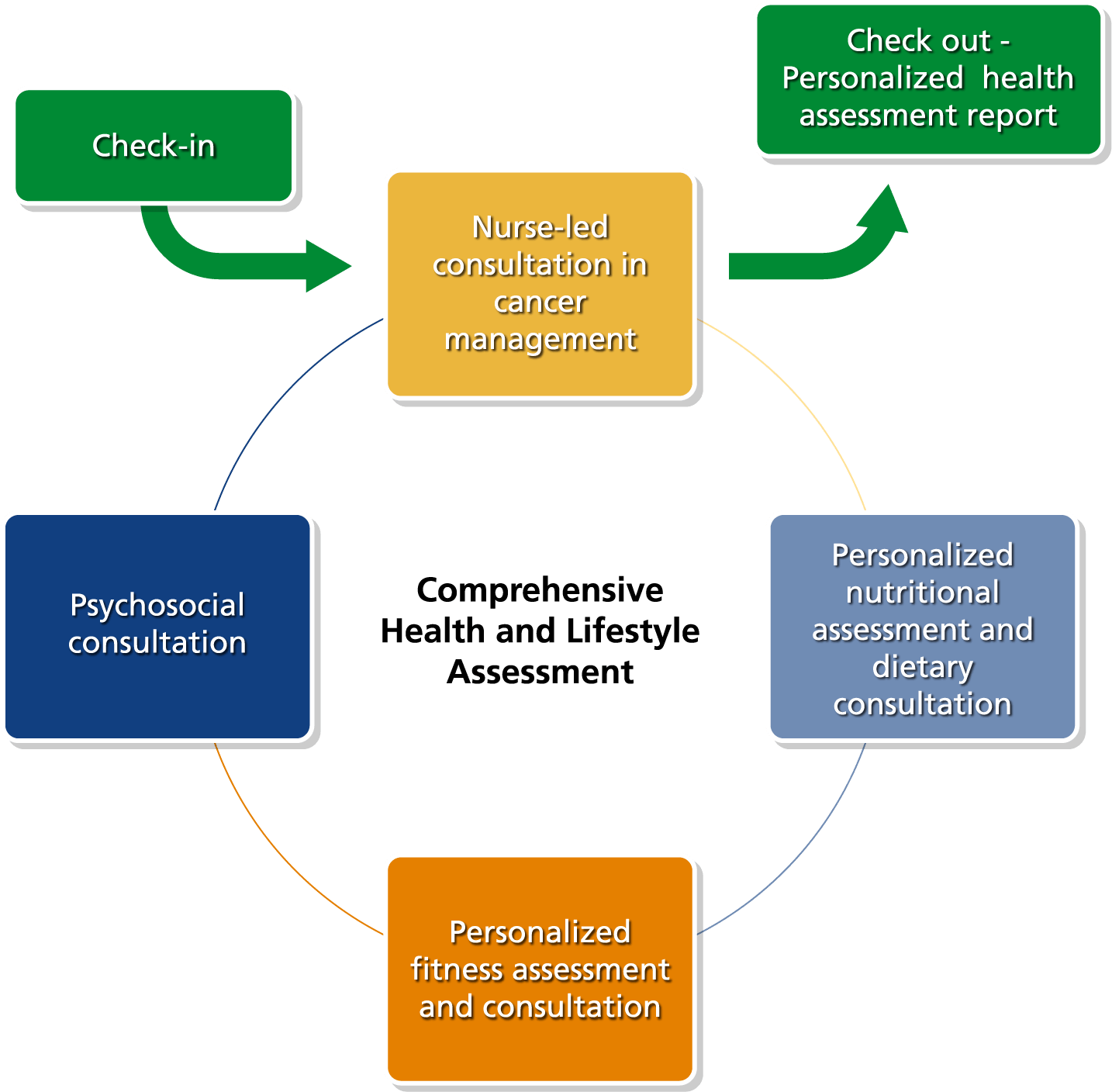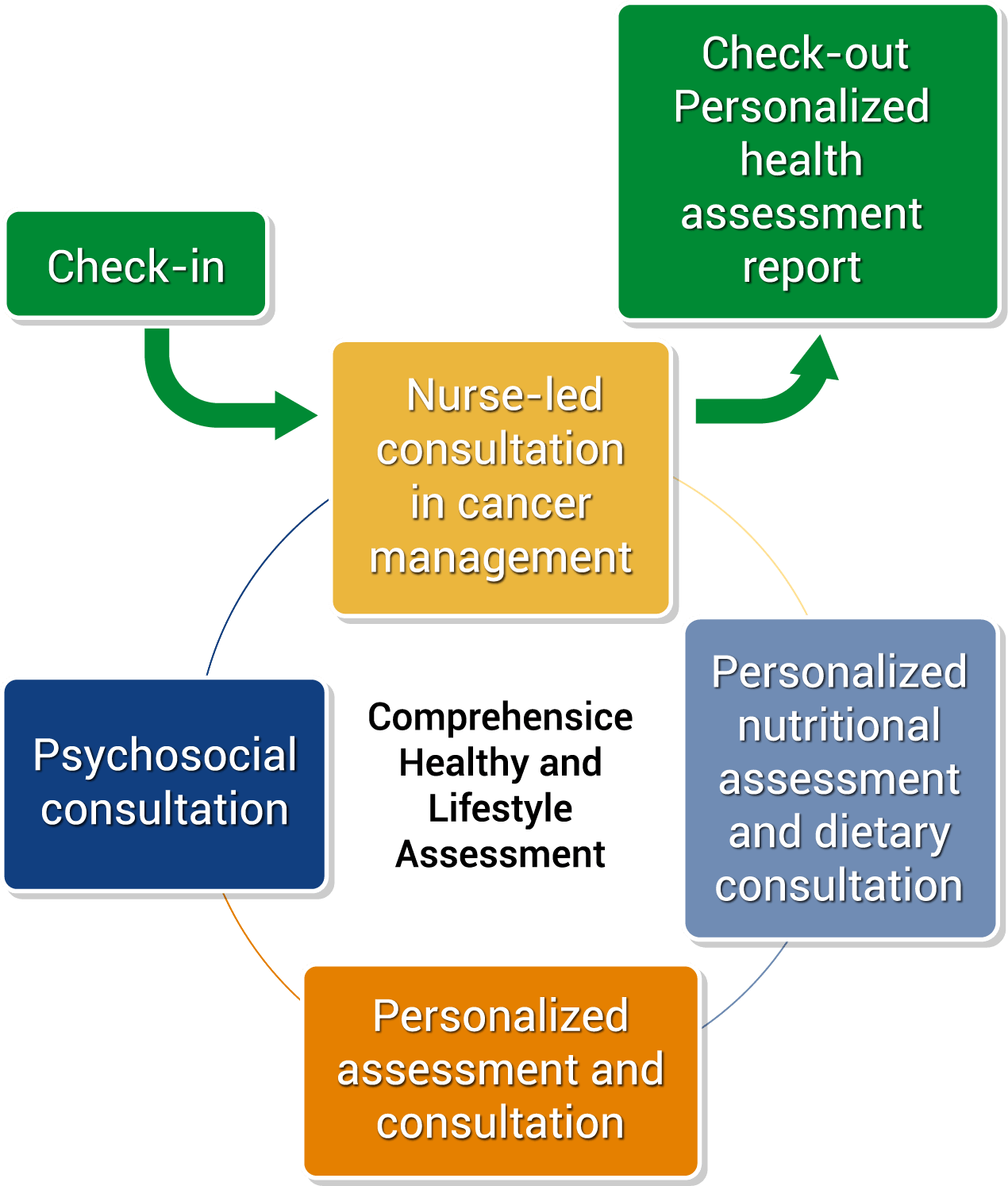Cancer diagnosis is often viewed as a life-changing event. Once treatment is over, many patients expect that they will move on and things would just get back to normal. However, this is not always the case for many patients. Some of them experience side effects from their surgery or treatment and do not go away once treatment finishes. Furthermore, most patients want to establish a healthy lifestyle, but often don’t know how to begin.
JCICC Survivorship Clinic aims to provide support in managing post-treatment symptoms and offer personalized diet and physical activity advice, for cancer survivors who have completed their primary cancer treatment. A one-time assessment and consultation will be carried out, with possibility for follow-up consultation if needed.
Please refer to Survivorship clinic leaflet for more information.


















